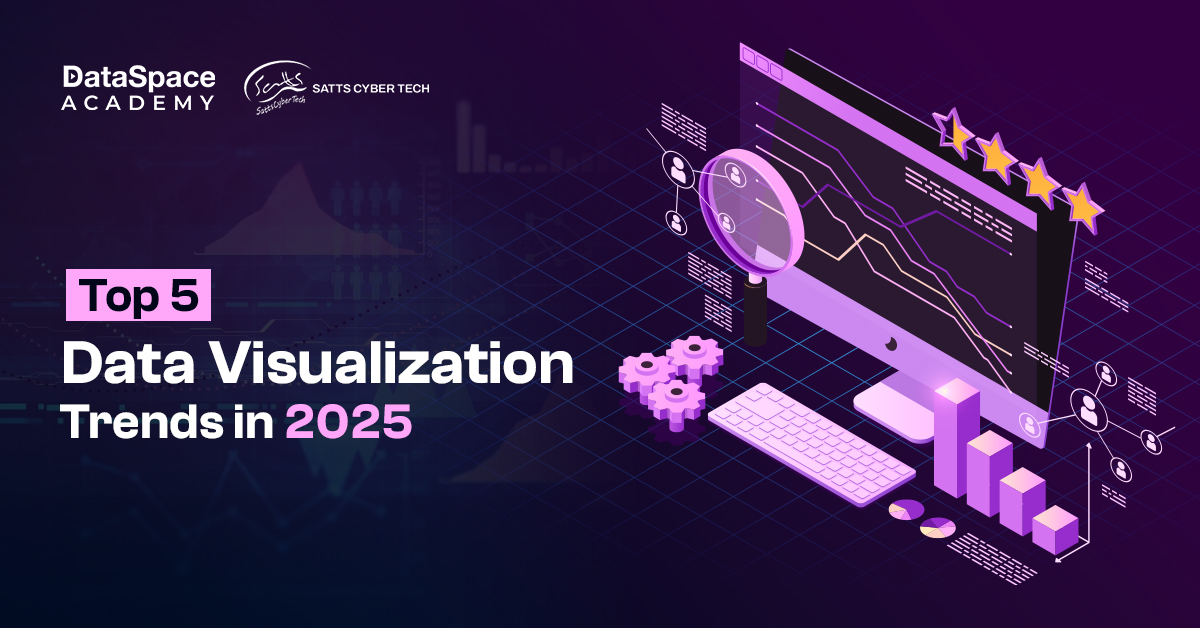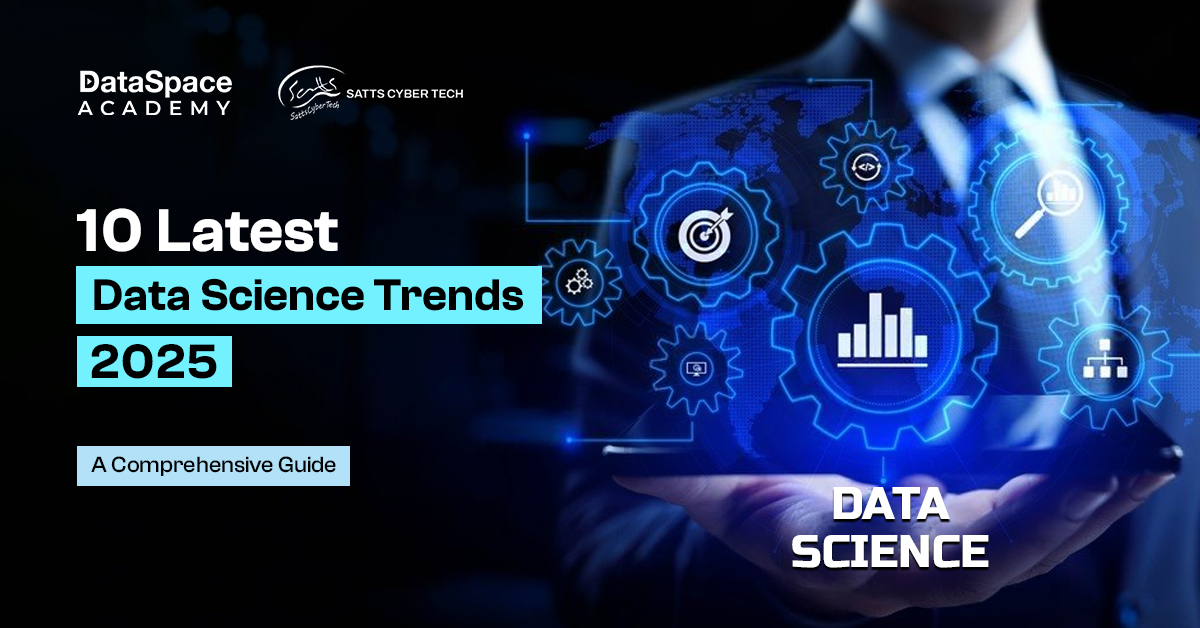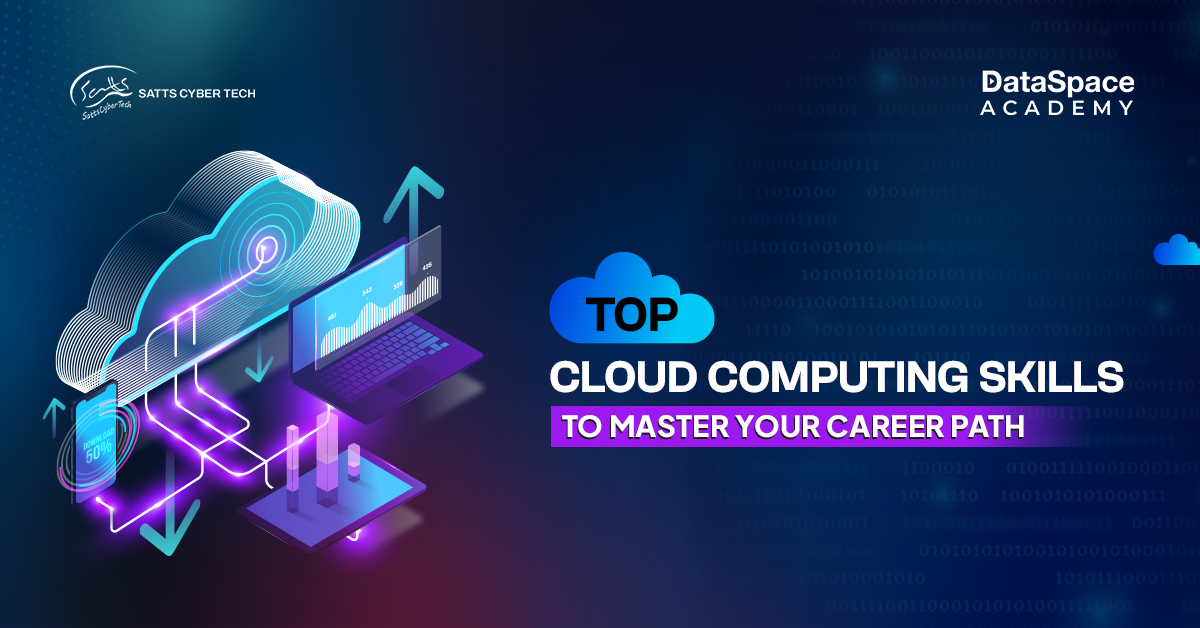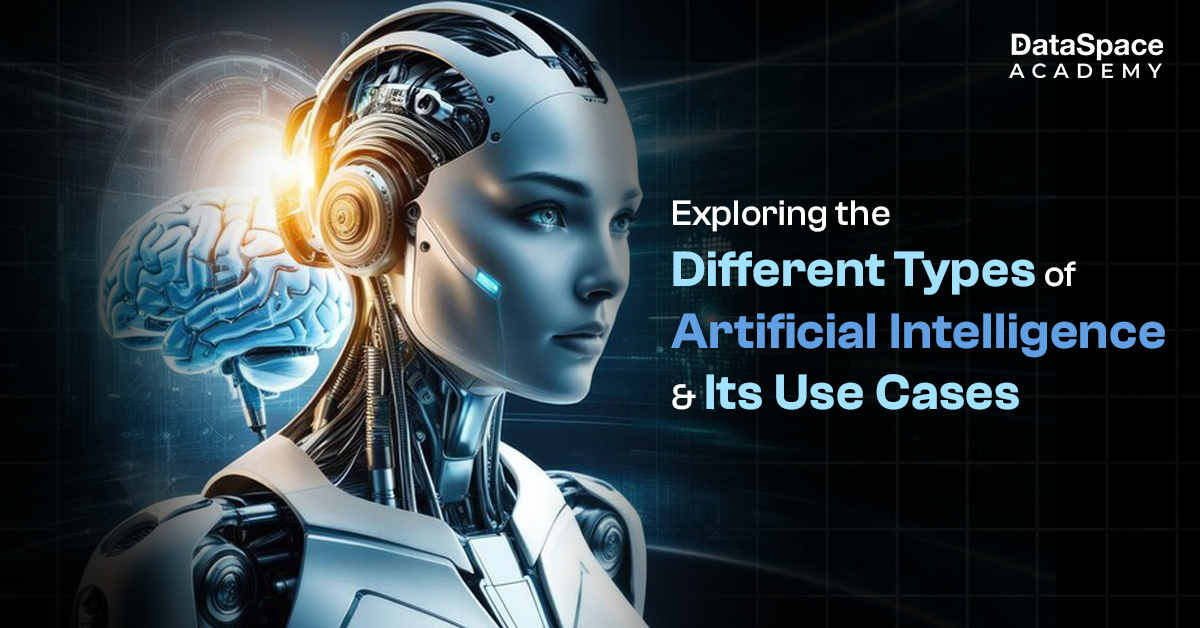Top 5 Data Science Jobs - Roles, Skills, and More
Last Updated : 01 Apr, 2024
 1.31L
1.31L

Introduction
Demand for data scientists is soaring, and for all the right reasons. Market stats have predicted a whopping 300% rise in demand for these professionals over the coming 8 -10 years. Currently, there are more than 45,000 AI and data science jobs in India alone (source: Economic Times). Today data scientists and data engineers as freshers can earn up to Rs. 14 lakh annually while database admins can earn around Rs. 12 lakhs.
What’s propelling the demand?
Every day we generate 2.5 quintillion bytes of data and the numbers are not slowing down. Industries are leveraging this data to optimise their businesses and create dedicated customer solutions. The explosion of data, coupled with increasing demand for data-driven decision-making, has opened multiple job opportunities for professionals in the data domain. These professionals have emerged as the driving force behind uncovering valuable insights and shaping the future of businesses and organisations.
With promising career opportunities, high salaries, and exponential career growth, data science may be the perfect career path for you. The post below offers a curated guide on the most lucrative data science job opportunities.
Top Data Science Jobs
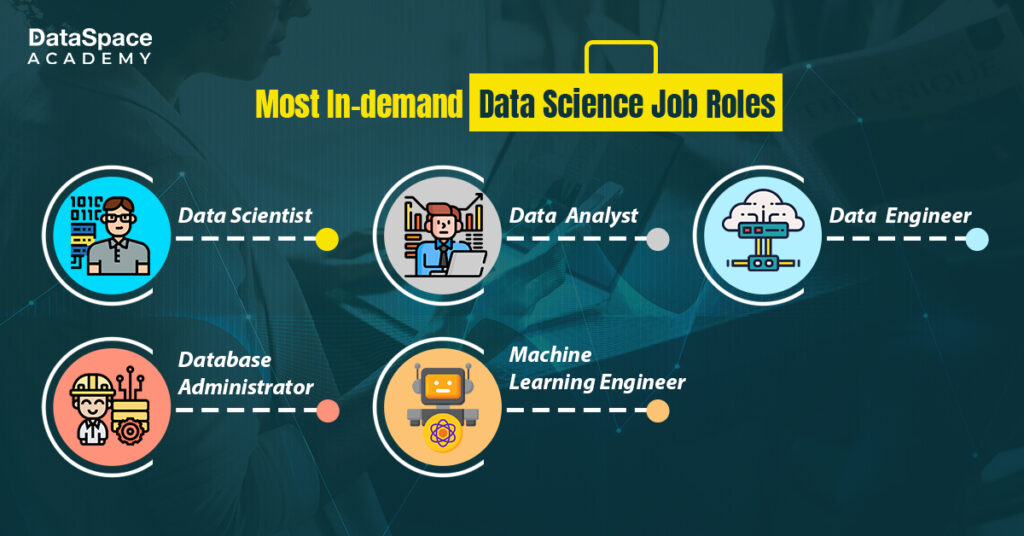
- Gathering and analysing data from various trustworthy sources
- Processing, cleansing, and integrating data to derive insights
- Utilising tools and techniques to visualize data and help design future strategies
- Suggesting alternative methods and proposing solutions to tackle complex business challenges
- Proficiency in R or Python.
- Expertise in major query languages like Hive, SQL, Pig, etc.
- A sound understanding of ML algorithms as well as applied statistical.
- Strong understanding of data visualisation tools like Matplotlib, Tableau, etc.
- Solid communication skills (both verbal and written)
- Utilising automated tools for gathering data from various sources.
- Optimising gathered data and ensuring their accuracy and quality.
- Data analysis, maintenance of databases, extraction of insights, and report creation
- Advocating data literacy in collaboration with various stakeholders and departments.
- Detailed attention and potential risk assessment.
- Capacity to process huge data sets as well as transforming data into valuable insights.
- Proficiency in data analytics tools, Hadoop-based analytics, and business intelligence concepts.
- Experience in data visualisation, data warehousing, and data retrieval concepts.
- Developing database according to specific business needs.
- Building prototypes and algorithms to convert raw data into valuable insights.
- Creating data systems and pipelines that make reporting, analysis, and using data more convenient.
- Designing improvements to improve data credibility and quality.
- Proficiency in R, Java, Python, etc.
- Stronghold over relational and non-relational databases and ETL tools.
- Technical proficiency in data automation, scripting, and storage.
- Hands-on expertise in ML concepts, cloud computing, and big data
- Strong knowledge of data security concepts and practices.
- Designing, developing, and configuring database environment.
- Detecting problems in advance so that correctional steps can be taken to prevent significant bottlenecks.
- Implementing strict security measures and backup procedures.
- Proposing improvements to refine the database system.
- Proficiency in MS SQL, Oracle Database, Hadoop, or PostgreSQL technologies.
- Ability to set up, maintain, and monitor data networks.
- Hands-on experience with data backup, recovery, security, and integrity.
- Excellent analytical and problem-solving skills.
- Build and implement machine learning algorithms.
- Train, validate, and fine-tune models.
- Optimise models for performance and scalability.
- Document the machine learning pipeline.
- Proficiency in programming languages such as Python or R.
- Knowledge of statistical modelling and evaluation.
- Familiarity with machine learning frameworks and libraries.
- Skills in data visualization and interpretation.
1. Data Scientist
When talking about data science, the first role that comes to mind is data scientist. Well, data scientist job responsibilities include cleaning, sorting, and analysing data to identify underlying patterns and present actionable insights.
-
a. Roles and Responsibilities
-
b. Required tools/skills
-
c. Top companies hiring: Deloitte PwC, Amazon, Microsoft, etc.
Join our data science course online to learn about the art and science of data science.
2. Data Analyst
Similar to a data scientist, a data analyst job consists of various tasks, including optimising, visualising, and manipulating the data. They are responsible for collecting and cleaning raw data and presenting the information through visualisation like charts and graphs. Plus, they have to run queries on the databases from time to time. This is one of the most in-demand data science jobs for freshers.
-
a. Roles and responsibilities
-
b. Required tools/skills
-
c. Top companies hiring: ScienceSoft, SG Analytics, Tableau, Sisense
3. Data Science Engineer
The role of a data engineer combines developing, updating, testing, and maintaining datasets infrastructure or big data pipelines for businesses. Data scientists can use these data pipelines to run their prediction models. Additionally, data engineers focus on processing collected data and matching its format to the stored data.
-
a. Roles and responsibilities
-
b. Required tools/skills
-
c. Top companies hiring: Facebook, Airbnb, AT&T, Capital One, etc.
4. Database administrator
A database administrator’s job involves maintaining and securing the database environment for storing vast amounts of data for the organisation. In short, these professionals are responsible for the seamless operation of the database. They ensure that the stored data is reliable, error-free, and readily available to the assigned parties when required.
-
a. Roles and responsibilities
-
b. Required tools/skills
-
c. Top companies hiring: IBM, TCS, Oracle, AT&T, Bank of America, etc.
5. Machine Learning Engineer
Machine learning engineers are highly in demand across different industries today. These professionals are responsible for designing, implementing, and deploying machine learning algorithms that enable computers to learn on their own. They work closely with data scientists and software engineers to develop algorithms and models that can learn from data and make predictions. Their role involves preprocessing and analysing data, selecting appropriate algorithms, training and fine-tuning models, and integrating them into production systems.
-
a. Roles and responsibilities
-
b. Required tools/skills
-
c. Top companies hiring: Microsoft, Apple, IBM, NVIDIA
Building a Career in Data Science- The Roadmap
Building a career in data science requires hard work and patience. But with the right guidelines, you can successfully scale up your success in this domain.
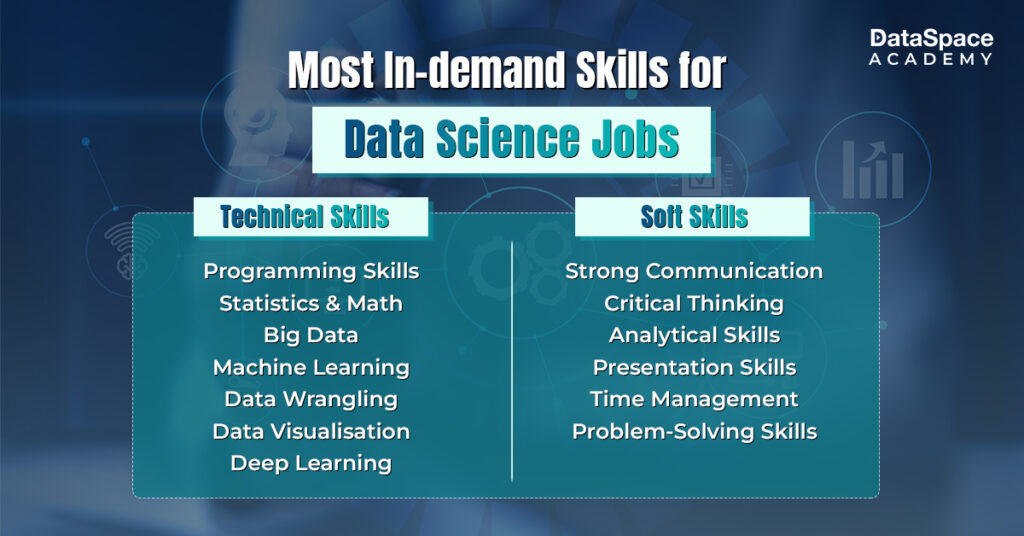
Here is a brief roadmap for helping you build a career in this domain:
- Educational Background: Start with building a strong foundation in related domains such as statistics, mathematics, and computer science. Aspiring learners can opt for boot camps, online courses, or specialised data science courses. DataSpace Academy’s Certification course in Data Science is a highly recommended course for learning the data scientist required skills.
- Build Necessary Skills: Data scientists need a combination of technical skills, domain knowledge, as well as problem-solving abilities to answer specific industry-related questions. Ideally, proficiency in programming languages like Python or R is recommended. Plus, the knowledge of statistics, data visualisation, and algorithms is crucial for effective data analysis and model development.
- Earning Specialisation: For a sustainable data science career, a candidate is expected to expand their knowledge in specialised areas. They can explore advanced topics such as natural language processing, image recognition, or time series analysis, based on their interests and career goals.
- Gain Practical Experience: Along with training, a candidate should also apply for internships and fresher positions. These entry-level openings will enable them to gain hands-on experience and practical application of their respective skills in real-world scenarios.
Conclusion
Remember, building a career in data science requires dedication, continuous learning, and practical application of skills. It’s important to stay persistent, seek out opportunities, and adapt to the ever-evolving field of data science.
As the demand for data science grows across industries, it will push the data scientist job scope to newer heights.
Do you want to upskill your career? Then DataSpace Academy is there to help you. Join us now.
 1.31L
1.31L



